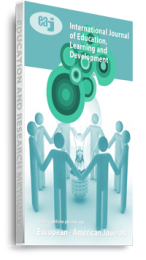This study investigates the current state and transformative potential of Teacher Professional Development (TPD) in public and private universities in Kandahar, Afghanistan. The research aimed to assess the availability, effectiveness, and challenges of TPD programs while exploring innovative, technology-based methods for enhancing sustainability. The study used a mixed-methods design, involving 218 participants selected through Simple Random Sampling (SRS) and Purposive Sampling. Data were collected using questionnaires and structured interviews. The study’s findings show that although some TPD programs exist, they are few and some are not aligned with lecturers’ professional needs. The existing TPD programs are deemed beneficial for developing basic knowledge in teaching and research. Significant barriers to participation included a lack of time due to a heavy teaching workload, limited availability and access to TPD programs, outdated traditional methods, insufficient technology integration, an emphasis on theoretical ideas, and a lack of practical work. Despite these challenges, a majority of participants expressed a willingness to engage in more creative and participatory approaches, with a preference for blended learning, collaborative learning, AI-powered and online learning platforms as innovative solutions. This paper emphasizes the importance of inclusive, flexible, and locally appropriate TPD models to support sustained educational growth in Kandahar universities. The findings offer important implications for universities, policymakers, and future research into effective TPD models for sustainable education.
Keywords: Availability, Challenges, Effectiveness, TPD, innovative, sustainable education

